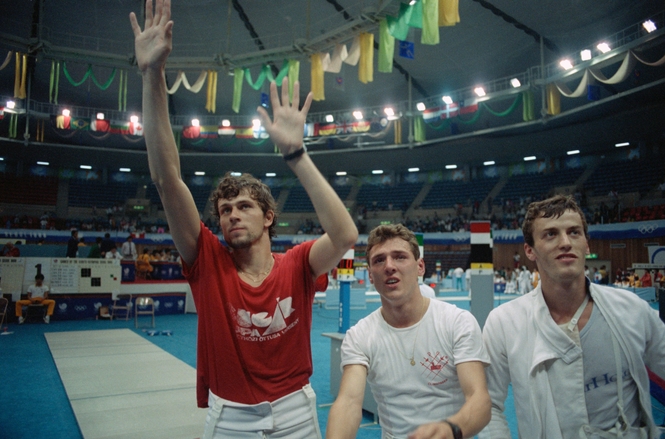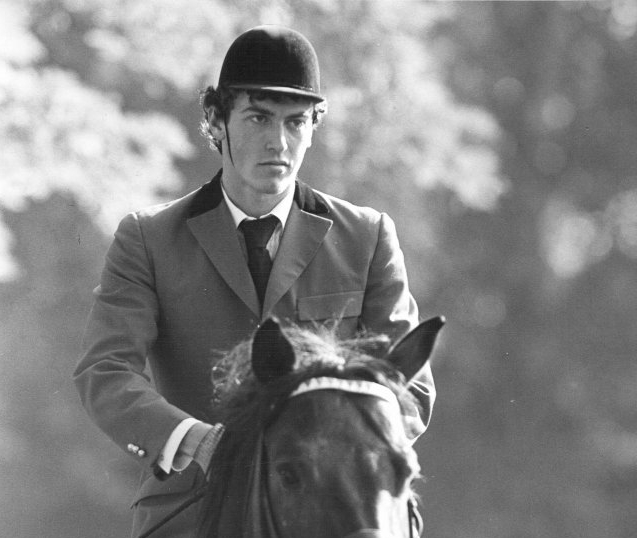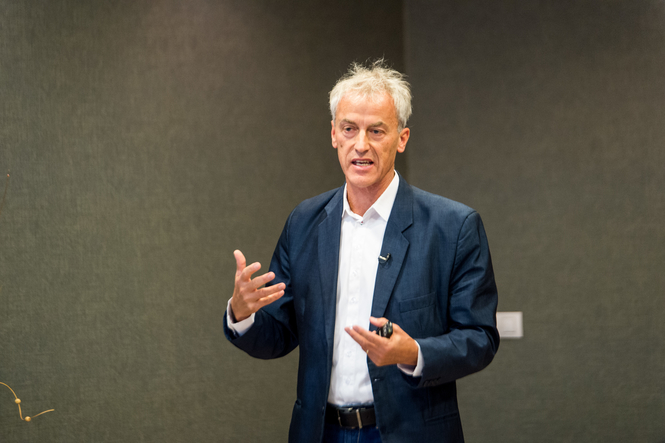Golden memories: Attila Mizser (HUN) on Seoul 1988 Olympic Modern Pentathlon glory
In the 1960s, Hungary succeeded Sweden as kings of the Olympic Modern Pentathlon. The Magyars owned the podium in Rome (1960), Tokyo (1964) and Mexico City (1968), claiming four of the six gold medals on offer as well as two silvers and a bronze.
Attila Mizser was born in 1961, so this spectacular run of glory passed him by. But when he came into his prime, in the late 1980s, memories of those magical moments had started to fade from the national conscience.
Hungary hadn’t produced an Olympic champion since Andras Balczo in Munich in 1972, and when Mizser and his team-mates made the journey to Seoul in 1988, it was 20 years since the last of their three team gold medals (Helsinki 1952, Rome 1960 and Mexico City 1968). The team crown – the ultimate symbol of Modern Pentathlon prowess – had been worn by Soviet Union, Great Britain and Italy during that time.

Many factors contributed to Hungary losing momentum during this period – not least the Soviet-led boycott of the 1984 Olympics in Los Angeles – but there must have been a significant degree of pressure on the shoulders of Mizser, Janos Martinek and Laszlo Fabian to make up for lost time in 1988.
How well they bore that pressure.
The Olympic team medals, now disbanded, used to be distributed according to the aggregate score of three athletes competing from each nation. Hungary didn’t leave anything to chance over five days that ended with Mizser, Martinek and Fabian all standing prominent and proud in the top seven.
The highest praise was reserved for Martinek, who made sure it was a truly unforgettable event for Hungary by claiming the individual gold, 25 points clear of silver medallist Carlo Massullo (ITA). Fabian finished 7th and Mizser protected the team quotient in 4th.
Not that he has any negative reflections on the result today.
“The way to that medal was pretty long. Actually I started Pentathlon at the age of nine or ten, and I was 27 in Seoul so it was a long way. My father used to be a Pentathlon coach and that’s how I came up with the Modern Pentathlon,” he recalls.
“The Seoul Games were truly fantastic, on the one hand for the gold medal and on the other hand because we had cheering Hungarians all around us.
“The whole Olympic experience, when you have an official Hungarian team of more than 220 athletes and they go and cheer for each other, that created such an incredible atmosphere for us at the running course in Seoul and it was a moment I will never forget.

“It was one of the most important moments of my life, definitely. It was something pretty strong that has stayed with me all of my life.
“I’m proud to be an Olympic champion and I have to say a big thanks to the Hungarian Modern Pentathlon community, to my team-mates Laszlo Fabian and Janos Martinek as it was a team gold medal, and definitely without them it couldn’t have happened. I could tell you the story all day long about the Seoul experience, it was amazing.”
Leaving Korea did not mark the end of Attila’s love story with the Olympics. Four years later he was in even better condition and won a spectacular individual silver medal, albeit without enough support from compatriots to add a team medal.
Hungary has continued to remain highly competitive since then, but only Zsuzsanna Voros (Athens 2004) has taken the ultimate prize of Olympic gold back to Budapest. Today, under the watchful eye of coach Martinek, the country has several female and male athletes with the potential to reprise the great days of the past.
So how does Attila view the changes that have taken place in the format of Modern Pentathlon since his heyday?
“There were a lot of changes, definitely, and it was practically continuous if you go back to the history and origin and roots of the sport. They were always changing the rules relating to Modern Pentathlon, but I truly think this was necessary,” he affirms.
“Today, all of us Pentathlon lovers have to know that a sport can only exist and live if it’s good for the consumers. Now we live in a consumer society and if it’s not interesting, if it’s not quick, if it’s boring … if it is five days long it cannot be interesting to people.
“The one-day concept and the Laser Run are very strong assets for the future of Pentathlon, I truly believe it.”




